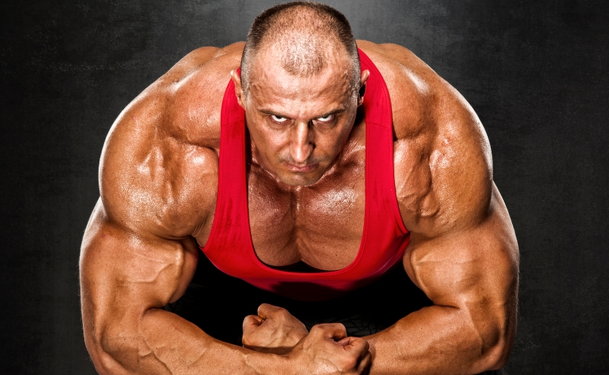Testosterone is known as the “male hormone” for good reason – testosterone is responsible for the physical changes that make boys men – lowered voices, hairy chests and erectile function. Testosterone levels peak at around 20 years old and begin to decline naturally after 30 years old.
Since some degree of hormonal shift is normal, should you be concerned about your testosterone levels? The answer is a resounding yes. If your testosterone levels are out-of-whack, your health and well-being may be thrown off too.
Why Your Testosterone Levels Matter
Studies have found striking correlations between common medical conditions and testosterone levels. Consider this:
- 40% of men with high cholesterol and 40% of men with high blood pressure had low testosterone levels.
- 50% of men who were obese and 50% of diabetic men had low testosterone.
- 30% of men with HIV and 50% of men with AIDS also had low testosterone.
What is the relationship between these common medical conditions and testosterone levels? A better understanding of what testosterone is and how it affects your body should shed some light the relationship between testosterone levels and your health.
You may already know that testosterone is responsible for male sexual development and a healthy sex drive, but did you know that testosterone contributes to blood cell production and maintaining body mass as well? Healthy levels of testosterone are also imperative for male fertility, erectile function and body hair growth.
Testosterone is produced by the testis and regulated by the interaction between the testis, hypothalamus and pituitary gland. Anything which affects the testis, hypothalamus or pituitary can affect testosterone levels.
Eight Signs You Have Too Much Testosterone
While low testosterone is the most common testosterone imbalance, can too much testosterone wreak havoc on your body like low testosterone can?
High testosterone levels are usually caused by poorly-regulated hormone therapies (supplementing low testosterone with too much synthetic testosterone) and anabolic steroid abuse, sometimes seen with athletes and bodybuilders.
Excess testosterone cause the body’s natural production of testosterone to shut down, and the body may convert excess testosterone to estrogen, causing:
- testicle shrinkage
- reduced sperm count
- enlarged prostate
- breast tissue enlargement
- oily skin
- acne
- an increase in red blood cell production
- excessive aggression and anger
The Problem with Low Testosterone
Hypogonadism, otherwise known as male menopause, is an underproduction of testosterone by the testes. There are two types of hypogonadism.
- Primary hypogonadism occurs when the testis don’t produce enough testosterone as a result of injury, infection, tumors, or genetic defects. Drug or alcohol abuse can also lower testosterone production, as can radiation and chemotherapy.
- Secondary hypogonadism occurs when there is decreased testosterone as a result of hypothalamus or pituitary dysfunction. Secondary hypogonadism can be treated with drug therapy, and often fertility problems can be remedied with this type of treatment.
Low testosterone can cause:
- erectile dysfunction
- decreased sexual appetite
- fertility problems
- weight gain
- decreased energy and stamina
- loss of muscle and bone mass
- depression
Diagnosing & Treating Low Testosterone
Since symptoms of low testosterone mimic symptoms of other diseases, your doctor should rule out high blood pressure, diabetes, depression or heart disease as the cause of your symptoms. After these conditions are ruled out, low testosterone may be considered a likely culprit.
Testosterone levels can be determined by:
- taking a simple blood test, usually given in the morning when testosterone values are highest.
- Men who experience fertility problems often benefit from semen analysis to detect hypogonadism.
- Pituitary imaging can be used to identify pituitary issues and to identify tumors.
- Testicular biopsy is used to identify testicular cancer, infection, or other problems which can contribute to hypogonadism and infertility.
Doctors can treat low testosterone with testosterone replacement therapy, administered in the form of injections, patches, or topical gels or creams.
In addition to hormone replacement therapy, lifestyle changes can go a long way in reducing symptoms of low testosterone. Men benefit from a healthy diet which includes healthy saturated fats and minimizes consumption of fructose and unhealthy sugars. Regular exercise with strength-training, adequate vitamin D intake, and reduced stress can enhance testosterone levels as well.
Balance is the key when it comes to testosterone levels. Your testosterone levels do matter - to your health and well-being, and to your sexual performance and satisfaction.


